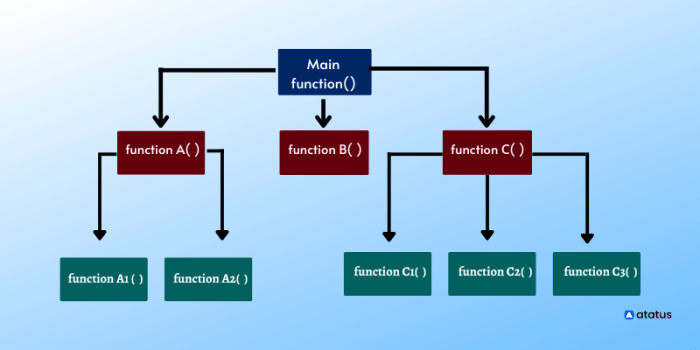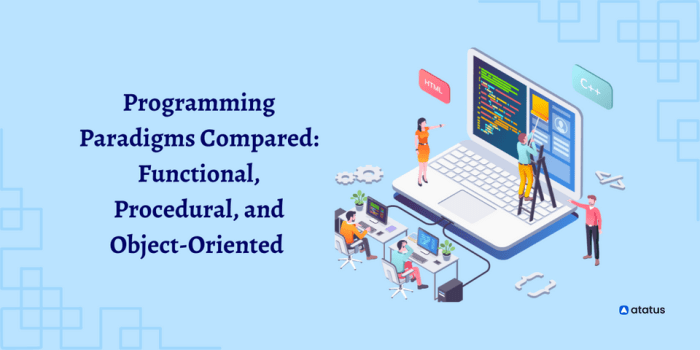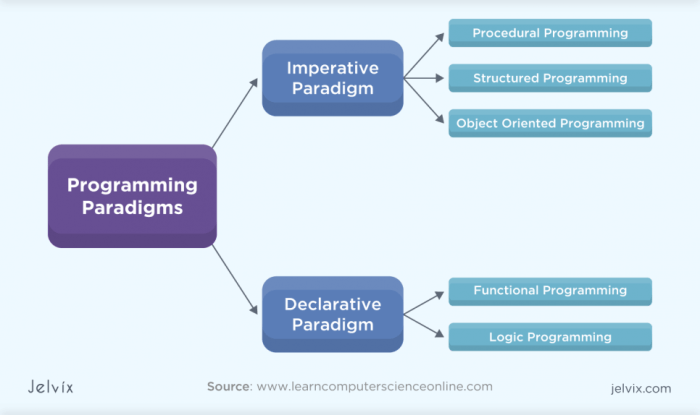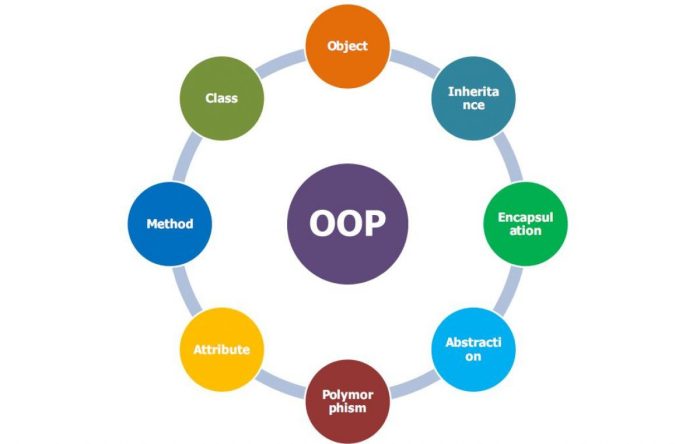Many programming languages are moving away from the object-oriented paradigm. – Many programming languages are moving away from the object-oriented paradigm, embracing new approaches that offer distinct advantages. This shift signifies a paradigm shift in software development, opening up new possibilities for innovation and efficiency.
Functional programming, data-oriented programming, and hybrid models are among the alternatives gaining traction, each with its own strengths and applications. Understanding this transition is crucial for developers seeking to stay ahead of the curve and leverage the benefits of these emerging paradigms.
Paradigm Shift in Programming Languages: Many Programming Languages Are Moving Away From The Object-oriented Paradigm.

Modern programming languages are witnessing a significant transition away from object-oriented programming (OOP). This shift is driven by the limitations of OOP in addressing the increasing complexity and dynamism of software systems.
OOP’s rigid class-based structure and emphasis on encapsulation can hinder flexibility and reusability. Additionally, OOP’s reliance on mutable state and inheritance hierarchies can lead to complex and error-prone code.
Functional Programming (FP) as an Alternative Paradigm
Functional programming (FP) has emerged as a compelling alternative to OOP. FP emphasizes immutability, referential transparency, and composability.
- Immutability: Variables cannot be modified once assigned, ensuring data integrity and eliminating side effects.
- Referential transparency: The value of a function depends solely on its arguments, allowing for predictable and testable code.
- Composability: Functions can be combined and reused in various contexts, promoting modularity and code reuse.
Popular FP languages include Haskell, Lisp, and Scala, which find applications in areas such as financial modeling, data analysis, and machine learning.
Hybrid Programming Models, Many programming languages are moving away from the object-oriented paradigm.
Some languages combine OOP and FP concepts to create hybrid models. These models offer the flexibility of OOP with the benefits of FP.
- Benefits: Increased flexibility, reduced complexity, and improved maintainability.
- Drawbacks: Potential for code bloat and increased learning curve.
Examples of hybrid languages include Java 8+, C#, and Python, which provide support for functional features such as lambda expressions and immutability.
Data-Oriented Programming (DOP) and Other Non-OOP Paradigms
Data-oriented programming (DOP) focuses on data representation and manipulation, rather than object-oriented concepts.
- Principles: Data is stored in tables or arrays, and operations are performed on the entire data set.
- Advantages: Improved performance, data locality, and suitability for data-intensive applications.
Other non-OOP paradigms include logic programming (e.g., Prolog) and constraint programming (e.g., ECLiPSe), which are designed for solving complex logical problems.
Impact on Software Development
The shift away from OOP has profound implications for software development practices.
- Software design: Emphasis on functional decomposition and immutability.
- Testing: Increased use of property-based testing and immutable data structures.
- Maintenance: Reduced complexity and improved testability due to immutability and composability.
Notable software projects that have successfully adopted non-OOP approaches include the Erlang-based WhatsApp and the Clojure-based Datomic database.
Detailed FAQs
What are the reasons for the shift away from object-oriented programming?
OOP has limitations in certain scenarios, such as concurrency, immutability, and composability. Alternative paradigms offer solutions to these challenges, leading to improved code maintainability and performance.
How does functional programming differ from object-oriented programming?
FP emphasizes immutability, referential transparency, and composability. It treats data as immutable values and functions as pure transformations, leading to code that is easier to reason about and test.
What are the advantages of hybrid programming models?
Hybrid models combine the strengths of OOP and FP, allowing developers to leverage object-oriented concepts for encapsulation and inheritance while incorporating functional programming techniques for immutability and concurrency.


